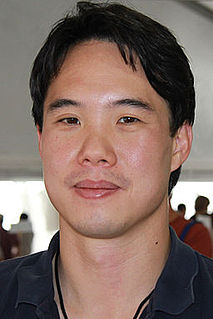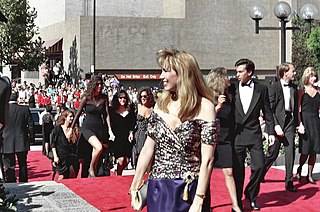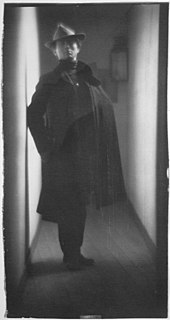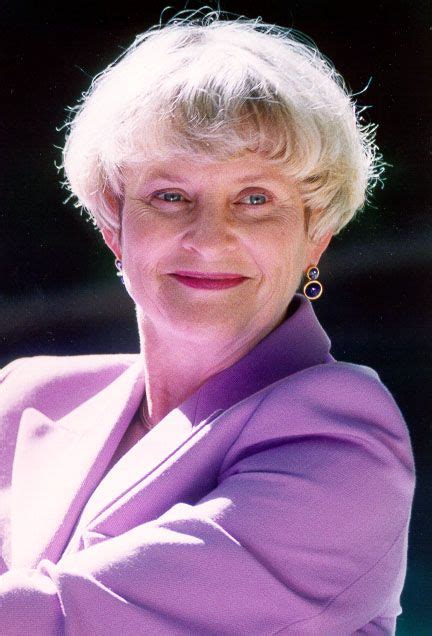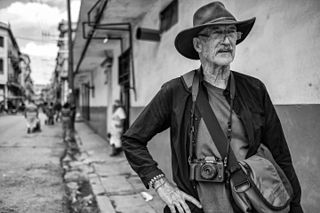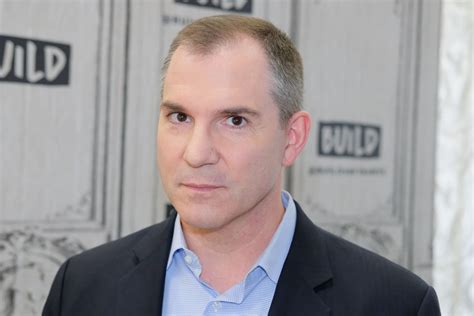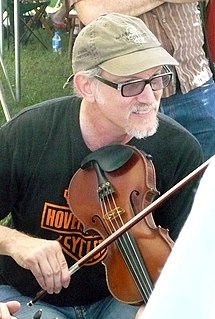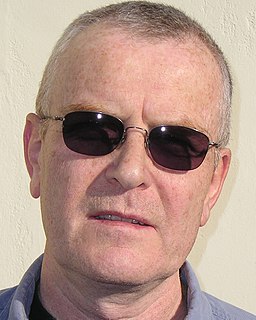Top 1142 Print Quotes & Sayings - Page 19
Explore popular Print quotes.
Last updated on November 14, 2024.
Never use a metaphor, simile, or other figure of speech which you are used to seeing in print. Never use a long word where a short one will do. If it is possible to cut a word out always cut it out. Never use the passive voice where you can use the active. Never use a foreign phrase a scientific word or a jargon word if you can think of an everyday English equivalent. Break any of these rules sooner than say anything outright barbarous.
To put it another way, every love relationship is based upon unwritten conventions rashly agreed upon by the lovers during the first weeks of their love. On the one hand, they are living a sort of dream; on the other, without realizing it, they are drawing up the fine print of their contracts like the most hard-nosed of lawyers. O lovers! Be wary during those perilous first days! If you serve the other party breakfast in bed, you will be obliged to continue same in perpetuity or face charges of animosity and treason!
It ticks me no end when people get ticked off at those of us who comment audibly and in print on events and problems. That's what we're paid for. Why clutter up your mind with a bunch of facts that might inhibit the solve-ability of us who must express an opinion? After all, all the world cries out for a solution to its problems, and we supply them right and left. Come to think of it, it's we who should be giving our deplorers and detractors the blast; because 99% of the time they don't do as we say.
How frail and ephemeral is the material substance of letters, which makes their very survival so hazardous. Print has a permanence of its own, though it may not be much worth preserving, but a letter! Conveyed by uncertain transportation, over which the sender has no control; committed to a single individual who may be careless or inappreciative; left to the mercy of future generations, of families maybe anxious to suppress the past, of the accidents of removals and house-cleanings, or of mere ignorance. How often it has been by the veriest chance that they have survived at all.
I am trying to get the hang of this new fangled writing machine, but I am not making a shining success of it. However, this is the first attempt I have ever made & yet I perceive I shall soon & easily acquire a fine facility in its use. ... The machine has several virtues. I believe it will print faster than I can write. One may lean back in his chair & work it. It piles an awful stack of words on one page. It don't muss things or scatter ink blots around. Of course it saves paper.
The Canon AE1 - a fully manual camera. [My mother] had a 50mm, which is a standard lens, and then I got a 28mm. Then I started a little punk magazine, a zine, when I was 14 or 15 years old. I was shooting my friends skateboarding and it was the beginning of the Macintosh. We wouldn't do layouts on the computer; we would pick the font and then type up a paragraph and then print it out and cut it up and put it in a little mock-up and Xerox it.
Television and radio are what I call sequential media; they're not simultaneous media. With simultaneous media, you can scan your eye down an electronic or print page and pick among six or seven stories you might like and want to read. With television and radio, you have to wait until the guy's finished talking about the balloon boy, which I don't have the slightest interest in, to find out that all hell's broken loose in Baghdad. Because they've chosen that day to start with the balloon boy.
In common with other artists the photographer wants his finished print to convey to others his own response to his subject. In the fulfillment of this aim, his greatest asset is the directness of the process he employs. But this advantage can only be retained if he simplifies his equipment and technic to the minimum necessary, and keeps his approach from from all formula, art-dogma, rules and taboos. Only then can he be free to put his photographic sight to use in discovering and revealing the nature of the world he lives in.
Real writers-that is, capital W Writers-rarely make much money. Their biggest reward is the occasional reader's response.... Commentators-in-print voicing big fat opinions-you might call us small w writers-get considerably more feedback than Writers. The letters I personally find most flattering are not the very rare ones that speak well of my editorials, but the occasional reader who wants to know who writes them. I always happily assume the letter-writers is implying that the editorials are so good that I couldn't have written them myself.
Nowadays I imagine people find freer and more accepting venues in blogs, on Tumblr and Instagram and Facebook, in the riot of shouting that trails in the wake of every news story. So there's always the pandemonium of the Internet, if you need to get your lunatic opinions out in public. I find most of that stuff a little insane-making and my preference is to encounter personal essays in the relatively sedate and stable universe of print, in literary quarterlies, magazines and books. But I'm sure you can find plenty of good stuff in lonely outposts all across the World Wide Web.
There's a real connection between the history of print in Europe and nationalism, and how those two things could be formed. I think they may both now be ending, for good and bad, but I think mainly for good. Either globalism was supposed to make people all realize this is one big business going on and we should know what's going on everywhere, or it makes people say, "I don't want to become part of this thing. I want to be incredibly different from you and I want to uphold my local behavior." Dress a certain way.
I love the book. I love the feel of a book in my hands, the compactness of it, the shape, the size. I love the feel of paper. The sound it makes when I turn a page. I love the beauty of print on paper, the patterns, the shapes, the fonts. I am astonished by the versatility and practicality of The Book. It is so simple. It is so fit for its purpose. It may give me mere content, but no e-reader will ever give me that sort of added pleasure.
We were to found a University magazine. A pair of little, active brothers-Livingstone by name, great skippers on the foot, great rubbers of the hands, who kept a book-shop over against the University building-had been debauched to play the part of publishers. We four were to be conjuct editors and, what was the main point of the concern, to print our own works; while, by every rule of arithmetic-that flatterer of credulity-the adventure must succeed and bring great profit. Well, well: it was a bright vision.
I think that all journalists, specifically print journalists, have a responsibility to educate the public. When you handle a culture's intellectual property, like journalists do, you have a responsibility not to tear it down, but to raise it up. The depiction of rap and of hip-hop culture in the media is one that needs more of a responsible approach from journalists. We need more 30-year-old journalists. We need more journalists who have children, who have families and wives or husbands, those kinds of journalists. And then you'll get a different depiction of hip-hop and rap music.
While we have a very strong popular culture, the roots of American culture are very shallow, and we put emphasis on how a movie does as far as the box office goes. Many years ago, it would have been vulgar to print box - office grosses in the paper. Now The New York Times does it, and it's the big story for people interested in arts and entertainment on Monday. Which is why emphasis has shifted away from filmmakers and fallen on movie stars and business people.
Be sure to incorporate your pooch into your daily activities to make her feel like a true family member. You can do this by signing your dog's name - or her paw print - on birthday cards, by getting 'from our dog to your dog' holiday cards, or by including your dog when asked the number of family members in your household. These small, considerate actions will make you an ideal petowner.
I see in the FBI 302, which was put out on Memorial Day weekend in print about this big where you needed to use a magnifying glass to read it, but I read it twice, I saw something that really concerned me.It said Hillary Clinton can't remember her exit interview from the CIA because she had no memory for a period of time after she had a concussion. She was secretary of state when she had no memory. Now there's something really seriously wrong with it.
Nothing (at least that can be done by humans) immortalizes anyone. The Fault in Our Stars will hopefully have a long and wonderful life, but it will eventually go out of print, and eventually the last person ever to read it will die, and then the characters will no longer live in any consciousness.Also, that is okay. That is good, actually. That is how it should be. One of the things the characters in this novel have to grapple with is the reality of temporaryness. What Gus in particular must reconcile himself to is that being temporary does not mean being unimportant or meaningless.
I am a free man?and I need my freedom. I need to be alone. I need to ponder my shame and my despair in seclusion; I need the sunshine and the paving stones of the streets without companions, without conversation, face to face with myself, with only the music of my heart for company. What do you want of me? When I have something to say, I put it in print. When I have something to give, I give it. Your prying curiosity turns my stomach! Your compliments humiliate me! Your tea poisons me! I owe nothing to any one. I would be responsible to God alone?if He existed!
A foolhardy lot, we accepted it all, as we always do, never asked: "What is going to happen to us now, with this invention of print?" In the same way, we never thought to ask, "How will our lives, our way of thinking, be changed by the internet, which has seduced a whole generation with its inanities so that even quite reasonable people will confess that, once they are hooked, it is hard to cut free, and they may find a whole day has passed in blogging etc?"
We can sit here and talk about all the negativity, which we've done a little bit, but for every act of evil in the world, there are a million acts of kindness. Basically, our nature is to love each other and care about each other, and most of us do that. Most of us have no quarrel with anybody who's living on another side of the planet and who might have a different religious persuasion. It's just these small minorities to the far right and the far left who get all of the news time and print space.
You want to tell a story? Grow a heart. Grow two. Now, with the second heart, smash the first one into bits. Gross, right? A bloody pulpy liquid mess. Look at it, try to make sense of it. Realize you can't. Because there is no sense. Ask your computer to print out a list of every lie you have ever told. Ask yourself how much of the universe you have ever really seen. Look in the mirror. Are you sure you're you? Are you sure you didn't slip out of yourself in the middle of the night, and someone else slipped into you, without you or you or any of you even noticing?
As people get their opinions so largely from the newspapers they read, the corruption of the schools would not matter so much if the Press were free. But the Press is not free. As it costs at least a quarter of a million of money to establish a daily newspaper in London, the newspapers are owned by rich men. And they depend on the advertisements of other rich men. Editors and journalists who express opinions in print that are opposed to the interests of the rich are dismissed and replaced by subservient ones.
The way we get to live forever is through memories stored in the hearts and souls of those whose lives we touch. That's our soul print. It's our comfort, our emotional nourishment at the end of the day and the end of a life. How wonderful that they are called up at will and savored randomly. It seems to me we should spend our lives in a conscious state of creating these meaningful moments that live on. Memories matter.
We did a campaign here with New York Times. We had a great ad: "Today in America, someone will kill an elephant for a bracelet." We became sensitized in our society. Now there are four or five billion people in Asia who need to get this message. We need to use social media, print magazines, celebrities - anything we can to share this message. It's not cool, it's not okay. You are destroying beautiful animals. You are robbing a continent of its wealth. And you are hurting a lot of innocent people.
Christmas begins what Easter celebrates. The child in the cradle became the king on the cross. And because he did, there are no marks on my record. Just grace. His offer has no fine print. He didn't tell me, "Clean up before you come in." He offered, "Come in, and I'll clean you up." It's not my grip on him that matters but his grip on me. And his grip is sure. So is his presence in my life.
People are more likely to search for specific books in which they are actively interested and that justify all of that effort of reading them. Electronic images and sounds, however, thrust themselves into people's environments, and the messages are received with little effort. In a sense, people must go after print messages, but electronic messages reach out and touch people. People will expose themselves to information in electronic media that they would never bother to read about in a book.
The photographic enthusiast likes to lure us into a darkened room in order to display his slides on a silver screen. Aided by the adaptability of the eye and by the borrowed light from the intense projector bulb, he can achieve those relationships in brightness that will make us dutifully admire the wonderful autumn tints he photographed on his latest trip. As soon as we look at a print of these photographs by day, the light seems to go out of them. It is one of the miracles of art that the same does not happen there.
Some day there may be... machinery that needs but to be wound up and sent roaming o'er hill and dale, through fields and meadows, by babbling brooks and shady woods - in short, a machine that will discriminately select its subject and, by means of a skillful arrangement of springs and screws, compose its motif, expose the plate, develop, print, and even mount and frame the result of its excursion, so that there will be nothing for us to do but to send it to the Royal Photographic Society's exhibition and gratefully to receive the 'Royal Medal'.
Such is professional jealousy; a scientist will never show any kindness for a theory which he did not start himself. There is no feeling of brotherhood among these people. Indeed, they always resent it when I call them brother. To show how far their ungenerosity can carry them, I will state that I offered to let Prof. H--y publish my great theory as his own discovery; I even begged him to do it; I even proposed to print it myself as his theory. Instead of thanking me, he said that if I tried to fasten that theory on him he would sue me for slander.
Well into the 19th century there were pronouncements from just about every branch of science and medicine that reading, writing, and thinking were dangerous for women. Articles in the Lancet declared that women's brains would burst and their uteruses atrophy if they engaged in any form of rigorous thinking. The famous physician J.D. Kellogg insisted that novel reading was the greatest cause of uterine disease among young women and urged parents to protect their daughters from the dreaded consequences of print.
Most of the photographs I make are personal pictures and never end up in print. Even the magazines I shoot for on assignment publish very few of the actual selects. Sometimes these personal pictures will end up in a book of my work. Oftentimes, however, they are simply photographs which I hope resonate, yet rarely find a publication home. I do a lot of personal work in Rio de Janeiro, and this of a parkour artist making a jump on Ipanema Beach is such a moment.
It's possible to think of photography as an act of editing, a matter of where you put your rectangle pull it out or take it away. Sometimes people ask me about films, cameras and development times in order to find out how to do landscape photography. The first thing I do in landscape photography is go out there and talk to the land - form a relationship, ask permission, it's not about going out there like some paparazzi with a Leica and snapping a few pictures, before running off to print them.
I know some say, let us have good laws, and no matter for the men that execute them: but let them consider, that though good laws do well, good men do better: for good laws may want good men, and be abolished or evaded [invaded in Franklin's print] by ill men; but good men will never want good laws, nor suffer ill ones.
We have brands spending ungodly amounts of money on print, television, outdoor radio, programmatic banner ads, website takeovers. Garbage. When I say garbage, they work-ish. They're just so overpriced. I don't know what else to say. I do not believe that it is worth the hundreds of thousands of dollars in distribution and hundreds of thousands of dollars in cost to make one 30-second video to tell a 29-year-old woman that your soap is great, in a world where she is not going to consume that commercial.
I was invited to give the Freshmen Convocation at Florida Gulf Coast University on October 24, 2004. My book The Open Space of Democracy had been selected as one of the "common readers" for the university's 1,050 entering freshmen. On October 6, William Merwin, the president of Florida Gulf Coast, made the decision to "postpone" the convocation. He cited negative statements I had made in print about President Bush. If our colleges and universities are no longer the champions and protectors of free speech, then no voice in this country is safe.
My school music teacher, Al Bennest, introduced me to jazz by playing Louis Armstrong's record of "West End Blues" for me. I found more jazz on the radio, and began looking for records. My paper route money, and later, money I earned working after school in a print shop and a butcher shop went toward buying jazz records. I taught myself the alto saxophone and the drums in order to play in my high school dance band.
We've given people both in print and even more so on TV these enormous doses of Donald Trump because people are consuming enormous doses of Donald Trump. If we had gotten a signal that John Kasich got as big an audience, believe me, you would have seen a lot more of John Kasich so it's complicated who's to blame, the media or the people consuming the media.
It used to be, if you were a reporter, you wrote a story and then you moved on to the next one. We were used to people coming to the New York Times. We waited for them to turn on our website or to pick up our print paper and see what we have. We now understand that we have to make our stories available to our readers. A lot of people get their news from Facebook or Twitter and we want to make sure that they see some of our best stories there, too. We do this more aggressively now than we did before.
Big banks churn out page after page of incomprehensible fine print to obscure the cost and risks of checking accounts, credit cards, mortgages and other financial products. The result is that consumers can't make direct product comparisons, markets aren't competitive, and costs are higher. If the playing field is leveled and the broken market fixed, a lot more money will stay in the pockets of millions of hard-working families. That's real stimulus - money to families, without increasing our national debt.
Seeing the world anew, as if it were new, is as old as writing. It's what all painters are trying to do, to see what's there, to see it in a way that renews it. It becomes more and more urgent as the planet gets worn flat and forest after forest is slain to print the paper for people's impressions to be scrawled down on. It becomes harder and harder to be original, to see things with an innocent eye. Innocence is much tied up with it. As the planet gets progressively less innocent, you need a more innocent eye to see it.
It was one of those strange moments that came to him rarely, but never left. A moment that stamped itself on heart and brain, instantly recallable in every detail, for all of his life. There was no telling what made these moments different from any other, though he knew them when they came. He had seen sights more gruesome and more beautiful by far, and been left with no more than a fleeting muddle of their memory. But these-- the still moments, as he called them to himself-- they came with no warning, to print a random image of the most common things inside his brain, indelible.
The IRS spends God knows how much of your tax money on these toll-free information hot lines staffed by IRS employees, whose idea of a dynamite tax tip is that you should print neatly. If you ask them a real tax question, such as how you can cheat, they're useless. So, for guidance, you want to look to big business. Big business never pays a nickel in taxes, according to Ralph Nader, who represents a big consumer organization that never pays a nickel in taxes. . . .
The newspaper industry when I came along in the mid-70s was rich and powerful and growing and hungry for material and open to new people. None of that is true in the newspaper industry today. Print in general is pretty rugged. The good thing is that you can gain a foothold on the Internet because everybody has access to it, even things like Twitter - I mean, you can get a reputation for being funny pretty quickly on Twitter, on a blog, that kind of thing.
The way you hold the bow, the way that violinists are trained to produce a note, is really different. I'm not an expert in classical music. I don't want to say something that ends up in print and somebody comes running after me with a shovel, but they're taught for each note to stand alone in a very deliberate kind of way, which is really different than how notes are strung together in old-time music to create rhythm.
Anyway, when I finished the book, I handed it in, didn't want to read it again, but when it finally was in print I felt like OK, I have to read this. And yeah, I thought God, this is petty, this is silly, too emotional, too raw...and maybe it was then, but now it all seems that it's so much better because all the stuff that felt petty and silly now seems more relevant because Andy was so important.
My success was the shock of recognition, probably, rather than the quality of the work. I mean, the quality may have been fine, but there's a lot of fine work out there. It was the fact that I was doing something that at that time, nobody else was doing, except for say, Mort Saul out in San Francisco on The Hungry Eye, and "Second City" was emerging out in Chicago. Nothing in print. It was basically happening in cabaret and nothing in fiction. And certainly nothing in New York in cartoons.
Every story is flawed, every story is subject to change. Even after it is set down to print, between covers of a book, a story is not immune to alteration. People can go on telling it in their own way, remembering it the way they want. And in each telling the ending may change, or even the beginning. Inevitably, in some cases it will be worse, and in others it just might be better. A story, after all, does not only belong to the one who is telling it. It belongs, in equal measure, to the one who is listening.
Blogging has mostly been an opportunity to react more immediately to experiences to try out ideas that I may end up using in the print media or in some other place. When I write books, it's a way for me to bring readers into the experience of writing the book, all through the process of writing the books that I write. I talk about what I'm up to in the blog. I let people know what I am doing. To me, it's just part of putting my professional life up in a way that people who are interested in it can access; and learning things from them as well.
Then she did something that really surprised me. She blinked back tears and put out her arms. I stepped forward and hugged her. Butterflies started turning my stomach into a mosh pit. "Hey, it's... it's okay." I patted her back. I was aware of everything in the room. I felt like I could read the tiniest print on any book on the shelves. Annabeth's hair smelled like lemon soap. She was shivering.
Guns, double-crosses, hitmen... I can get used to a lot of things, but I'm never going to get used to sleeping where apocalypse bugs mate,” Wednesday said, walking into the room looking around. She dropped her Birkin on the floor and heard something scuttling behind the cheap plastic wood print veneer covered dresser. She turned to face Alvin, her head cocked to the side. “Seriously. I'm not saying five-star... I'm saying go on Expedia and find a place that actually has stars... any stars.
I wrote a letter to the magazine [Time magazine] pointing out that [Richard] Corliss's comparison of Christopher Lee's Saruman to Osama Bin Laden, and the vastly outnumbered defenders of Helm's Deep united against the Orcs to the "Coalition of the Willing" fighting the good fight against Muslim hordes, displayed the simplistic, xenophobic, and arrogant worldview that makes the government of the United States feared and mistrusted around the world. The editors claimed they had no space to print my brief letter, which I felt was dishonest and cowardly.
It's critical to level the playing field, to make prices and risks clear up front, so when someone signs on for a student loan or a mortgage or a credit card, they know the tricks and traps hidden in the fine print. That's why the Consumer Financial Protection Bureau has been working on a new financial aid shopping sheet. A shorter, two-page credit card agreement, a simpler mortgage disclosure form. All those are aimed toward helping people understand the basic bargain.
Among all the complaints you hear these days about the crimes of the media, it seems to me the critics miss the big one. It is that especially TV, but also we of the print press, tend to reduce mess and complexity and ambiguity to a simple story line that doesn't reflect reality so much as it distorts it. ... What bothers me about the journalistic tendency to reduce unmanageable reality to self-contained, movielike little dramas is not just that we falsify when we do this. It is also that we really miss the good story.
The New York Times ran a story about [Jeff] Sessions meeting the Russian ambassador, and they ran Claire McCaskill's tweet excoriating Sessions for doing this and saying that he should resign. Well, then it was produced that Claire McCaskill had, in fact, sent two other tweets where she was bragging about having spent time with the Russian ambassador. So the New York Times, rather than print that, just removed her from the whole story.
Computer chips will cost about a penny. That's the cost of scrap paper. The Internet will be basically for free and it will be inside our contact lens. When we blink, we will go online. When we see somebody that we don't recognize, our contact lens will identify who they are, print out their biography in your contact lens and translate, if they're speaking Chinese, into English with subtitles as they speak.
Here in the UK, we've now got an evangelical television channel - it's the kind of thing that will be very familiar to everyone in the United States, especially if you've ever turned on your TV set on a Sunday morning, and seen one holy man after another, urging you to send money so that Jesus can buy a new cadillac. Apparently, Jesus can't save the world until he's been properly kitted out with a million-dollar mansion, and a private jet - some small print in the Gospels that we must have missed.
The deep-read is when you get gut-hooked and dragged overboard down and down through the maze of print and find, to your amazement, you can breathe down there after all and there’s a whole other world. I’m talking about the kind of reading when you realize that books are indeed interactive. . . . I’m talking about the kind of deep-read where it isn’t just the plot or the characters that matter, but the words and the way they fit together and the meandering evanescent thoughts you think between the lines: the kind of reading where you are fleetingly aware of your own mind at work.
The newspaper stories were like dreams to us, bad dreams dreamt by others. How awful, we would say, and they were, but they were awful without being believable. They were too melodramatic, they had a dimension that was not the dimension of our lives. We were the people who were not in the papers. We lived in the blank white spaces at the edges of print. It gave us more freedom. We lived in the gaps between the stories.
Precocious and eccentric are okay. But I think that people in the arts represent something integral and kind of secretive in everybody else. So the reason people like some artists is because they're saying or doing something that they would like to do or say, but they don't have the balls or the means. People are really afraid to put their ass on the line. Just to put your face on a poster and put your name in big print and say "Come see me," that takes some cojones, you know? Ambition is nothing to be ashamed of.




















